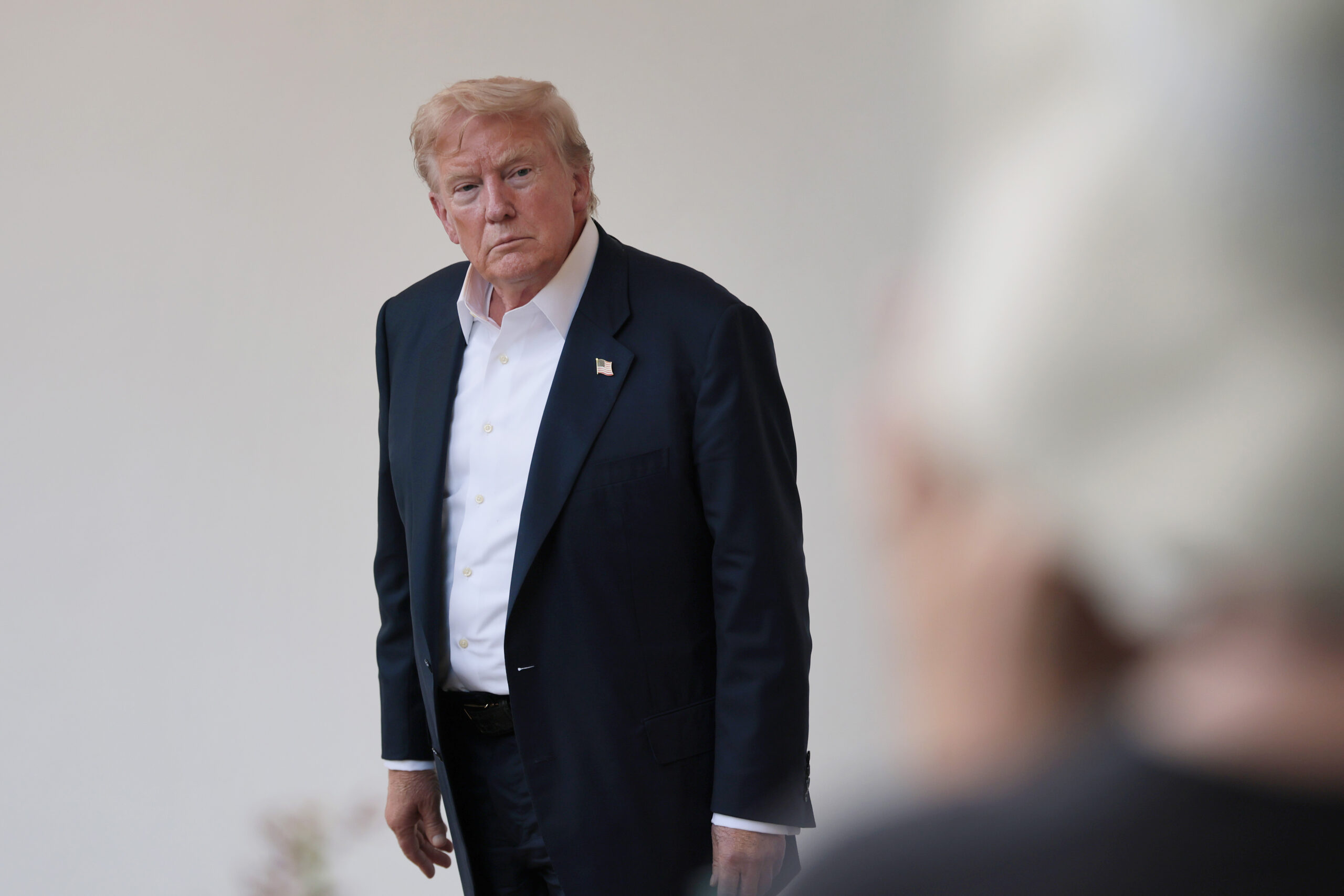- August 5, 2025
Trump’s AI plan is good for tech industry. But is it good for America?

If Trump and the technology moguls who support him get their way, they may push us further into a digital Wild West. There could be an even greater flood of AI-enhanced fake news, further weakening Americans’ trust in institutions and democracy.
In his “AI Action Plan” released July 23, Trump calls for dismantling “unnecessary regulatory barriers that hinder the private sector” in the AI industry. He signed three executive orders to that effect, setting the plan in motion.
Trump said deregulation of the AI industry is needed to allow innovation and ensure America’s continued leadership in the AI field. “When you’re allowed to be free of horrible, foolish regulation…there’s nobody who’s going to beat you, as we push even further into this exciting frontier,” he said.
Trump’s AI plan is partly a response to the 27-country European Union law to combat disinformation, known as the Digital Services Act (DSA). Under the recently-enacted DSA and its associated Code of Practice on Disinformation, social media and other internet companies have to comply with rules against illegal content and fake news.
Almost simultaneously, Brazil, Colombia, Uruguay and Chile signed a joint statement at a July 21 summit calling for a “digital democratic governance.” They said they will invite other countries to join them at the U.N. General Assembly annual session in New York in September.
At first glance, Trump’s AI deregulation crusade may sound like a smart move to guarantee America’s leadership in the global AI race and the right thing to do to prevent internet censorship.
But, far from being a move to protect business and individual freedoms, it has three major drawbacks.
First, it threatens to give a blank check to technology companies, in effect allowing them to prioritize profits over responsibility. This means they could potentially spread fake news — which generates more clicks and revenue — or simply avoid investing in robust content monitoring.
Take Elon Musk’s AI platform, Grok, for instance, which has been criticized among other things for recently putting out antisemitic responses and praising Adolph Hitler.
Grok later apologized and said it would make the necessary corrections to its algorithms. But the question remains: What incentive will tech companies have to invest in strong content control mechanisms if they are not forced to do so?
“Some guidelines need to be agreed upon,” says Jeffrey Sonnenfeld, a Yale University management professor who has written extensively on AI disinformation. “As Mark Twain said 150 years ago, a lie travels around the world before the truth can lace up its shoes.”
Sonnenfeld told me that America’s big tech companies are already operating in an extremely lax disinformation oversight atmosphere.
Under the so-called “Section 230” of the U.S. Communications Decency Act, technology firms that run AI chatbots or social media — unlike newspapers or TV networks — have immunity from liability for the content they put out. “They should be accountable, just like any other publisher would be,” Sonnenfeld told me.
Second, by promising to further deregulate the internet, Trump may be cementing his alliance with some of the world’s biggest AI firms CEOs — minus Musk, for now — and potentially securing their backing for his candidates in the 2026 mid-terms and the 2028 presidential elections.
We may be witnessing the growth of a “techno-industrial complex” whose leaders could instruct their algorithms to tame criticism of Trump in exchange for benefiting from a deregulated tech business climate that allows them to increase their profits.
Third, Trump’s calls for greater freedom of expression on the internet are inconsistent with his own complaints that AI chatbots are allegedly too progressive.
One of the three executive orders Trump signed as he presented his AI Action Plan forbids U.S. government agencies from buying or using AI chatbots that provide what he considers “woke” responses.
“The American people do not want woke Marxist lunacy in the AI models,” Trump said. So what is it? Does he want to give greater freedoms for AI companies to spread right-wing conspiracy theories, while clamping down on those he perceives to have a leftist slant?
Several of the biggest U.S. tech companies, such as Google and Microsoft, have already signed the European Union’s Code of Conduct on Disinformation. Will there be any serious pressure on them to do something similar in America?
These are all questions that deserve much greater attention. They will determine what news we get, and which political candidates will have a massive digital advantage in coming elections.

